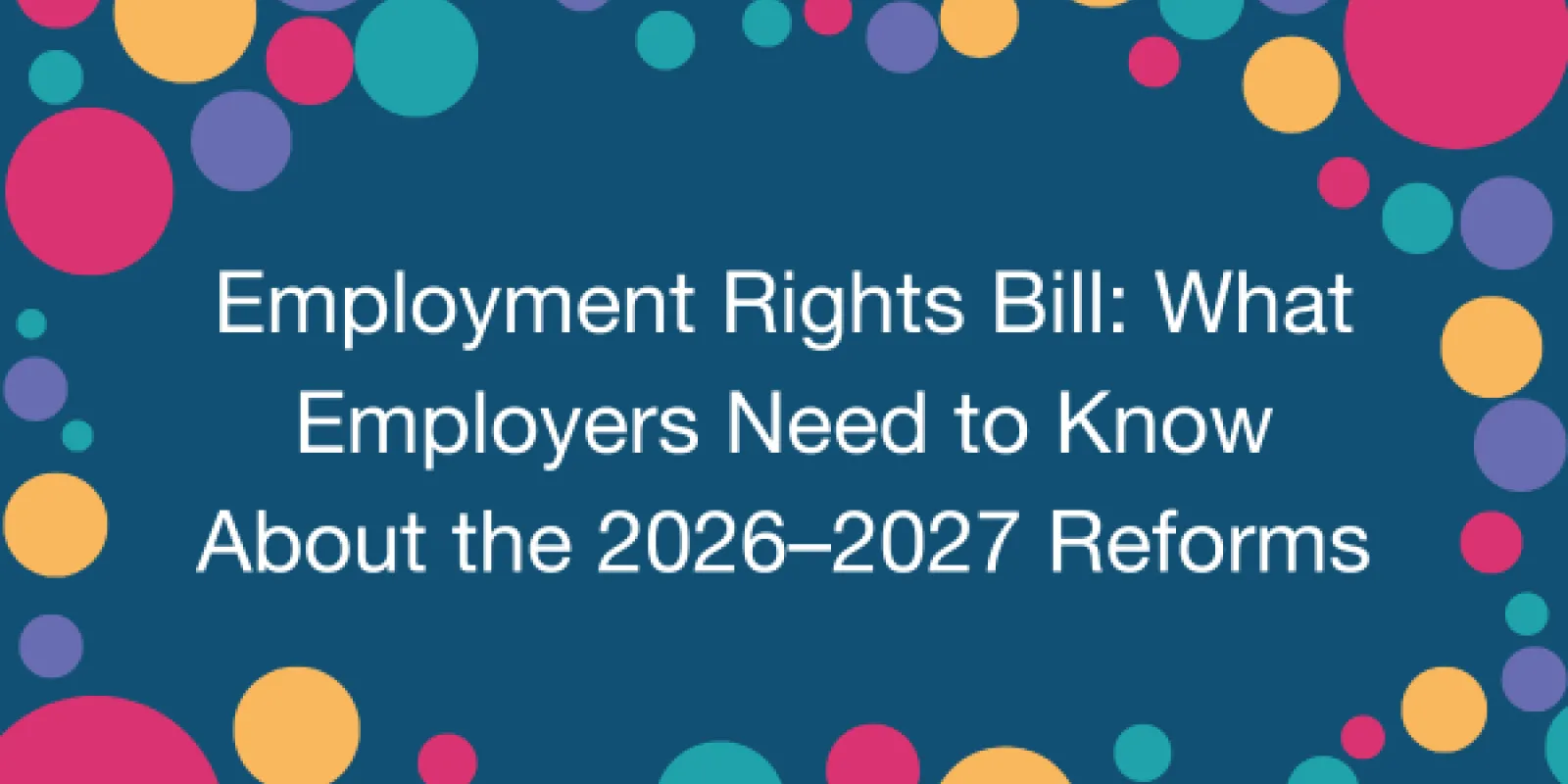News
Employment Rights Bill: What Employers Need to Know About the 2026–2027 Reforms

The government has now published its roadmap for implementing the Employment Rights Bill, offering a clearer picture of when the proposed reforms are expected to come into force. While the Bill itself was introduced in October 2024, the July 2025 roadmap confirms a phased approach, with most changes taking effect from 2026 onwards. Some of the most impactful changes, such as day 1 protection from unfair dismissal and changes to zero hours contracts, which were due to come into effect from October 2026 are now not scheduled until 2027 at the earliest.
Key changes scheduled to come into force in 2026 and 2027
April 2026:
- ‘Day 1’ rights for paternity and unpaid parental leave
- Statutory Sick Pay with no lower earnings limit or waiting period
- New whistleblowing protections
- Establishment of a Fair Work Agency
- Doubling the maximum period of the collective redundancy protective award
October 2026:
- Ban on “fire and rehire” practices
- Stronger trade union access and simplified recognition
- Tightening tipping law
- Duty to inform workers of their right to join a trade union and strengthen trade unions' right of access
- Further duties for employers to prevent third-party harassment
In 2027:
- ‘Day 1’ right to protection from unfair dismissal
- Further rights for pregnant workers
- Flexible working
- Bereavement leave
- Phasing out zero-hour contracts with employees to have the right to a contract reflecting actual hours worked
What do these incoming changes mean for employers?
Although there continue to be changes made to the Bill whilst it works its way through Parliament, it is clear that the upcoming changes brought about by the Employment Rights Bill will significantly reshape how employers manage contracts, absence, and working arrangements. With reforms being phased in from 2026, now is the time to prepare. Below are three key examples of how these changes could play out in practice and how we can help:
Example: An employer looking to reduce weekend pay rates would no longer be able to dismiss and rehire staff to enforce the change.
From October 2026, employers will no longer be able to use “fire and rehire” tactics to dismiss staff and offer re-employment on revised terms. We can advise on lawful alternatives and support through any resulting disputes.
Example: A part-time employee previously ineligible for SSP due to low earnings will now qualify from day one of illness.
From April 2026, statutory sick pay (SSP) will be payable from the first day of absence, with no lower earnings limit, meaning more employees will qualify for SSP. This may increase both the cost and the administrative burden for many employers. We can review your sickness absence policies and advise on managing short-term absence fairly and lawfully
Example: A worker is regularly scheduled to work 20 hours a week but is employed on a zero-hour contract. They are likely to be entitled to request a contract guaranteeing those working hours.
By 2027, workers will have the right to request a contract that reflects their actual working pattern. Now is the time to audit your casual and zero-hours arrangements. We can help draft compliant contracts and advise on handling requests for guaranteed hours arrangements.
Preparing for Change
The Employment Rights Bill roadmap offers a valuable opportunity to plan ahead. While some details are still subject to consultation, the direction of travel is clear. Reviewing and updating your employment contracts and workplace policies now will help future-proof your business and reduce legal risk.
We offer HR support through our expert legal guidance on compliance, employee disputes and drafting policies to ensure compliance with the latest employment legislation.
Get in touch with us today to learn more about how we can support you.



